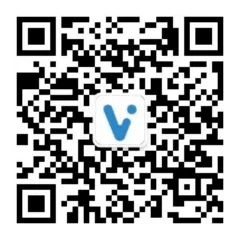Introduction
Cvitek provides TDL integration algorithms to reduce the time required for application development.
This architecture realizes the algorithm required by TDL, including its pre and post processing, and provides a unified and convenient programming interface.
At present, TDL SDK includes motion detection, face detection, face recognition, face tracking, pedestrian detection, semantic segmentation, license plate recognition, license plate detection, live recognition, IR live recognition, infant detection, cry detection, attitude detection, gesture detection, Gesture Recognition and other algorithms.
Compilation
The TDL-SDK program needs to be cross-compiled in the Linux environment of the PC host, such as Ubuntu 22.04 system.
Currently, there are two versions of OS for the Duo series board: V1 and V2. For related instructions, please refer to Resource Download Summary. The TDL-SDK for these two versions of OS is also different. The following describes the compilation methods of the TDL-SDK examples for these two versions of firmware.
TDL-SDK Examples for V1 OS Image
Download toolchain
wget https://sophon-file.sophon.cn/sophon-prod-s3/drive/23/03/07/16/host-tools.tar.gz
Extracting Toolchain:
tar xvf host-tools.tar.gz
Enter the toolchain directory and export the toolchain path to the environment variable:
cd host-tools
export PATH=$PATH:$(pwd)/gcc/riscv64-linux-musl-x86_64/bin
Verify that the toolchain is available:
riscv64-unknown-linux-musl-gcc -v
The version information of the cross-compilation tool chain can be displayed normally, that is, the toolchain is available:
$ riscv64-unknown-linux-musl-gcc -v
Using built-in specs.
COLLECT_GCC=riscv64-unknown-linux-musl-gcc
...
Thread model: posix
Supported LTO compression algorithms: zlib
gcc version 10.2.0 (Xuantie-900 linux-5.10.4 musl gcc Toolchain V2.6.1 B-20220906)
Download TDL-SDK sample
Download the TDL-SDK source code, the Duo and Duo256M/DuoS repositories are different:
-
Duo:
git clone https://github.com/milkv-duo/cvitek-tdl-sdk-cv180x.git
cd cvitek-tdl-sdk-cv180x -
Duo256M 和 DuoS:
git clone https://github.com/milkv-duo/cvitek-tdl-sdk-sg200x.git
cd cvitek-tdl-sdk-sg200x
If the repositories code is updated, you can execute git pull in the code directory to pull the latest code, such as Duo256M and DuoS:
cd cvitek-tdl-sdk-sg200x
git pull
After pulling the latest code, continue compiling.
Compile samples
cd sample
./compile_sample.sh
The generated program is in the corresponding subdirectory in the sample directory. For example, the face detection example sample_vi_fd is locatedin
cvi_tdl/sample_vi_fd
Clean:
./compile_sample.sh clean
TDL-SDK Examples for V2 OS Image
Get TDL-SDK sample
Get the repository code:
git clone https://github.com/milkv-duo/duo-tdl-examples.git
If there is any update to the repository code later, you can execute git pull in the code directory to pull the latest code, and then continue compiling after pulling the latest code.
Compile Example
The following takes the compilation of face detection program as an example to introduce the compilation process.
Enter the code directory:
cd duo-tdl-examples
Prepare the compilation environment:
source envsetup.sh
The first time you source it, the required toolchain will be automatically downloaded. The downloaded directory is named host-tools. When source it next time, if the directory already exists, it will not be downloaded again.
In the source process, you need to enter the required compilation target as prompted:
Select Product:
1. Duo (CV1800B)
2. Duo256M (SG2002) or DuoS (SG2000)
If the target board is Duo, select 1, if the target board is Duo256M or DuoS, select 2. Since Duo256M and DuoS support both RISCV and ARM architectures, you need to continue to select as prompted:
Select Arch:
1. ARM64
2. RISCV64
Which would you like:
If the test program needs to be run on a ARM system, select 1, if it is an RISCV system, select 2.
In the same terminal, you only need to source it once.
The sample program for face detection is sample_vi_fd. Enter the sample_vi_fd directory:
cd sample_vi_fd
Compile using the make command:
make
Send the sample_vi_fd program generated in the current directory to the Duo series board via scp or other methods for testing. If you need to clear the generated program, you can execute make clean to clear it.
Programs directly transferred to the Duo development board through scp may not have execution permissions. You need to add executable permissions in the development board's system using the chmod command:
chmod +x sample_vi_fd
The command to test the face detection example in the development board is sample_vi_fd + face detection model file. Note that the models used in Duo and Duo256M/DuoS are different.
Model download link: https://github.com/milkv-duo/tdl-models.
-
Duo (CV180X)
./sample_vi_fd /mnt/cvimodel/scrfd_320_256_ir_0x.cvimodel -
Duo256M/DuoS (SG200X)
./sample_vi_fd /mnt/cvimodel/scrfd_768_432_int8_1x.cvimodel
At this time, point the camera at the face, and the terminal log will print the number of faces currently detected. If you need to preview the video screen in real time on a computer, please refer to Face Detection Documentation.
Model support list
TDL-SDK Model List (Sophgo)
TDK-SDK Model Download (Sophgo)
https://github.com/sophgo/tdl_models/tree/main
Example description
For detailed descriptions and running methods of each example, please refer to the following chapters.
Reference Documentation
| Chinese Version(中文版) | 格式 | English Version | Format | ||
| 深度学习SDK软件开发指南 | html | TDL SDK Software Development Guide | html | ||
| YOLO系列开发指��南 | html | YOLO Development Guide | html | ||
